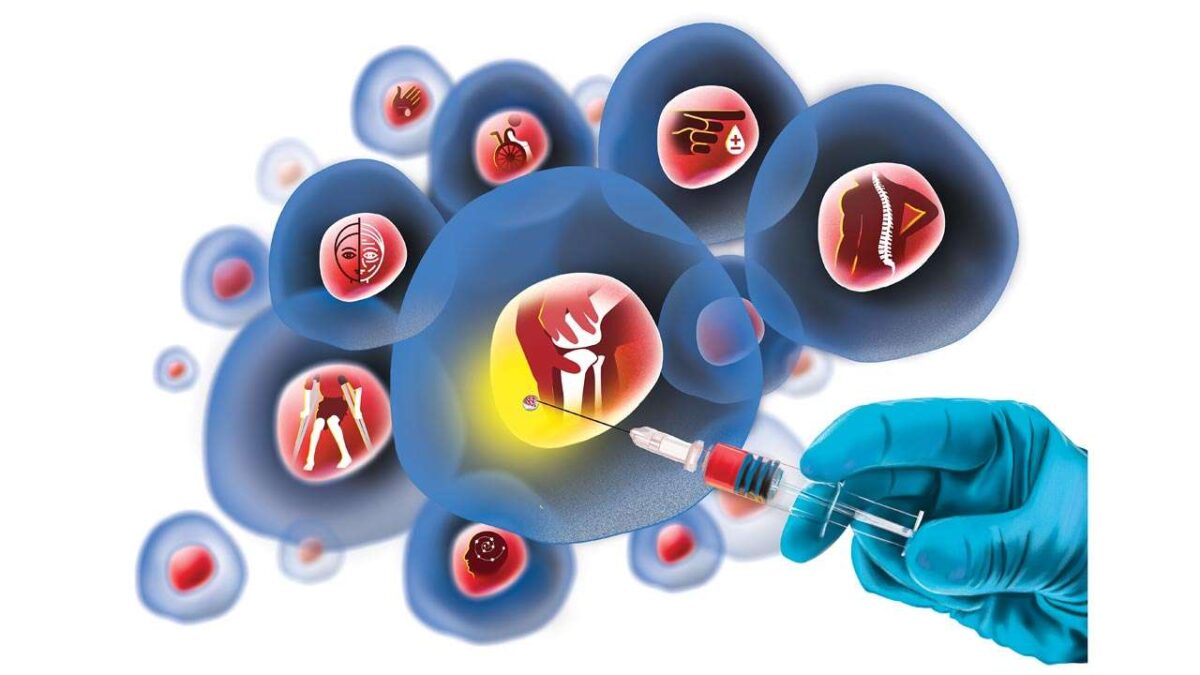Inflammatory bowel disease (IBD), encompassing Crohn’s disease and ulcerative colitis, can be a debilitating condition. It causes chronic inflammation of the digestive tract, leading to a range of uncomfortable and disruptive symptoms. While conventional treatments can manage these symptoms, they don’t always offer a cure. This is where the exciting field of Stem cell therapy emerges as a potential game-changer for IBD patients.
Understanding Stem Cells: The Body’s Repair Kit
Our bodies are home to incredible self-repair mechanisms. Stem cells are the foundation of this system. These unspecialized cells have the remarkable ability to transform into different types of specialized cells, like those found in the skin, muscles, or even the lining of your intestines. They also possess powerful anti-inflammatory and regenerative properties.
The Promise of Stem Cell Therapy for IBD
Stem cell therapy for IBD harnesses the potential of these wonder cells. The idea is to introduce healthy stem cells into the body to help repair damaged tissues in the inflamed gut and modulate the immune system’s overactive response, ultimately aiming to achieve remission and improve quality of life.
There are two main types of stem cells being explored for IBD treatment:
- Mesenchymal stem cells (MSCs): These stem cells can be derived from various sources, including bone marrow and fat tissue. MSCs are known for their immunomodulatory properties, meaning they can help calm down the overactive immune response that triggers inflammation in IBD.
- Hematopoietic stem cells (HSCs): These stem cells reside in bone marrow and are responsible for the production of blood cells. In some cases, hematopoietic stem cell transplantation (HSCT) is being explored for severe IBD patients who haven’t responded well to conventional treatments.
How Does Stem Cell Therapy for IBD Work?
The exact mechanisms of how Stem cell therapy for IBD works are still under investigation, but research suggests several potential pathways:
- Immunomodulation: Stem cells can interact with immune system cells, suppressing inflammation and promoting healing.
- Tissue Repair: Stem cells may differentiate into new intestinal cells, helping to repair damaged tissues in the gut lining.
- Angiogenesis: Stem cells can promote the growth of new blood vessels, improving blood flow to the inflamed areas and aiding healing.
Current State of Stem Cell Therapy for IBD
Stem cell therapy for IBD is still considered an emerging treatment option. While research is ongoing and promising, it’s important to understand that it’s not yet a widely available or standardized treatment. Here’s a breakdown of the current landscape:
- Clinical Trials: Numerous clinical trials are underway to evaluate the safety and efficacy of stem cell therapy for IBD. These trials are helping to refine the techniques and determine the optimal type and dosage of stem cells for different types of IBD.
- Limited Availability: Currently, stem cell therapy for IBD is not a standard treatment option offered at most hospitals. It might be available through select clinical trials or specialized treatment centers.
Considering Stem Cell Therapy for IBD?
If you’re interested in exploring stem cell therapy for IBD, here are some crucial points to consider:
- Talk to Your Doctor: Discuss your specific situation and potential treatment options with your gastroenterologist. They can guide you on whether stem cell therapy might be a suitable option for you and help you navigate potential clinical trials.
- Manage Expectations: Stem cell therapy is a promising field, but it’s still under development. It’s essential to have realistic expectations about the potential outcomes and understand that it’s not a guaranteed cure.
- Safety Considerations: As with any medical procedure, there can be potential risks associated with stem cell therapy. Discuss these risks thoroughly with your doctor before making a decision.
The Road Ahead for Stem Cell Therapy in IBD
The future of stem cell therapy for IBD is brimming with potential. As research continues to advance, we can expect to see more refined and effective protocols emerge. Here are some exciting possibilities on the horizon:
- Personalized Medicine: Tailoring stem cell therapy to individual patients based on their specific needs and disease type.
- Gene Editing: Using gene editing techniques to modify stem cells to enhance their therapeutic potential.
- Combination Therapies: Combining stem cell therapy with other established IBD treatments to achieve optimal results.
Conclusion: A Beacon of Hope
Stem cell therapy for IBD offers a beacon of hope for patients seeking a long-term solution to their condition. While it’s still in its early stages, the ongoing research and positive results from clinical trials paint a promising picture for the future.


